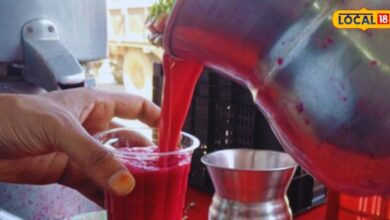Rajasthan
Makrana: Makrana marble hub longs for accidental insurance, govt aid | Jaipur News


White marble tiles stacked vertically on both sides of roads and advertisements of life insurance schemes promising ‘Cancer se suraksha’ (safety from cancer) are a common sight in the lanes of Makrana town in Nagaur district.
Premium quality marble used for sculptures and carvings, seen most notably at Taj Mahal, are supplied from the mines around this town in central Rajasthan, and they have given this place a solid renown.Makrana marble, as the stone produced here is known, is much sought after both nationally and globally for making idols, carvings, and designer structures in temples and buildings.
While mining work is the only source of livelihood for families in a 10-km radius of Makrana, they have long been struggling with financial hardships and occupational hazards. The arrival of yet another assembly polls has injected yet another dose of hope in mine workers and their families.
At least one person from every low-income family in Makrana works as a labourer in the marble mines here, which are typically 300 to 400 feet deep. Most workers toil there without safety gears and masks that could protect them from occupational hazards and mining dust.
Asif Khan, 21, is pursuing BSc in nursing at a private college near Makrana, but he works in the marble mines because “it is an assured source of income”. He said there is no guarantee that he would get a job after getting his nursing degree. “Marble miners can earn up to Rs 20,000 to Rs 25,000 a month,” said Khan.
“Our younger generations are also in this work as there is no other work. We have got schools and colleges here, but there is little help from the government,” said Majruddin, who owns parts of a marble mine at Chosira in the Gunawati range and works as a supervisor there.
Both marble mines owners and workers said they have two major demands they want the parties to fulfil: proper loans so that they do not have to rely on the whims of private financers, and government aid in cases of accidents at the mines.
“Mining produces tonnes of waste, and a lot of money is needed to clear it, but there is no loan facility from the government. We go to private financers. The waste, if not cleared on time, raises chances of accidents. People at work face the risks of boulders falling on them,” said Farookh Bhati, whose family owns a marble mine. He works as a supervisor there.
“We have to rely on private institutions to give aid to the families of the injured or deceased workers if there is an accident. It is a vicious cycle,” added Bhati.
The Makrana seat was won by BJP’s Roopa Ram with a margin of 1,488 votes in the 2018 polls. He beat Zakir Hussain Gesawat, a former Congress MLA who has been nominated by the party for the upcoming polls. This constituency has a sizeable Muslim population.
Premium quality marble used for sculptures and carvings, seen most notably at Taj Mahal, are supplied from the mines around this town in central Rajasthan, and they have given this place a solid renown.Makrana marble, as the stone produced here is known, is much sought after both nationally and globally for making idols, carvings, and designer structures in temples and buildings.
While mining work is the only source of livelihood for families in a 10-km radius of Makrana, they have long been struggling with financial hardships and occupational hazards. The arrival of yet another assembly polls has injected yet another dose of hope in mine workers and their families.
At least one person from every low-income family in Makrana works as a labourer in the marble mines here, which are typically 300 to 400 feet deep. Most workers toil there without safety gears and masks that could protect them from occupational hazards and mining dust.
Asif Khan, 21, is pursuing BSc in nursing at a private college near Makrana, but he works in the marble mines because “it is an assured source of income”. He said there is no guarantee that he would get a job after getting his nursing degree. “Marble miners can earn up to Rs 20,000 to Rs 25,000 a month,” said Khan.
“Our younger generations are also in this work as there is no other work. We have got schools and colleges here, but there is little help from the government,” said Majruddin, who owns parts of a marble mine at Chosira in the Gunawati range and works as a supervisor there.
Both marble mines owners and workers said they have two major demands they want the parties to fulfil: proper loans so that they do not have to rely on the whims of private financers, and government aid in cases of accidents at the mines.
“Mining produces tonnes of waste, and a lot of money is needed to clear it, but there is no loan facility from the government. We go to private financers. The waste, if not cleared on time, raises chances of accidents. People at work face the risks of boulders falling on them,” said Farookh Bhati, whose family owns a marble mine. He works as a supervisor there.
“We have to rely on private institutions to give aid to the families of the injured or deceased workers if there is an accident. It is a vicious cycle,” added Bhati.
The Makrana seat was won by BJP’s Roopa Ram with a margin of 1,488 votes in the 2018 polls. He beat Zakir Hussain Gesawat, a former Congress MLA who has been nominated by the party for the upcoming polls. This constituency has a sizeable Muslim population.




